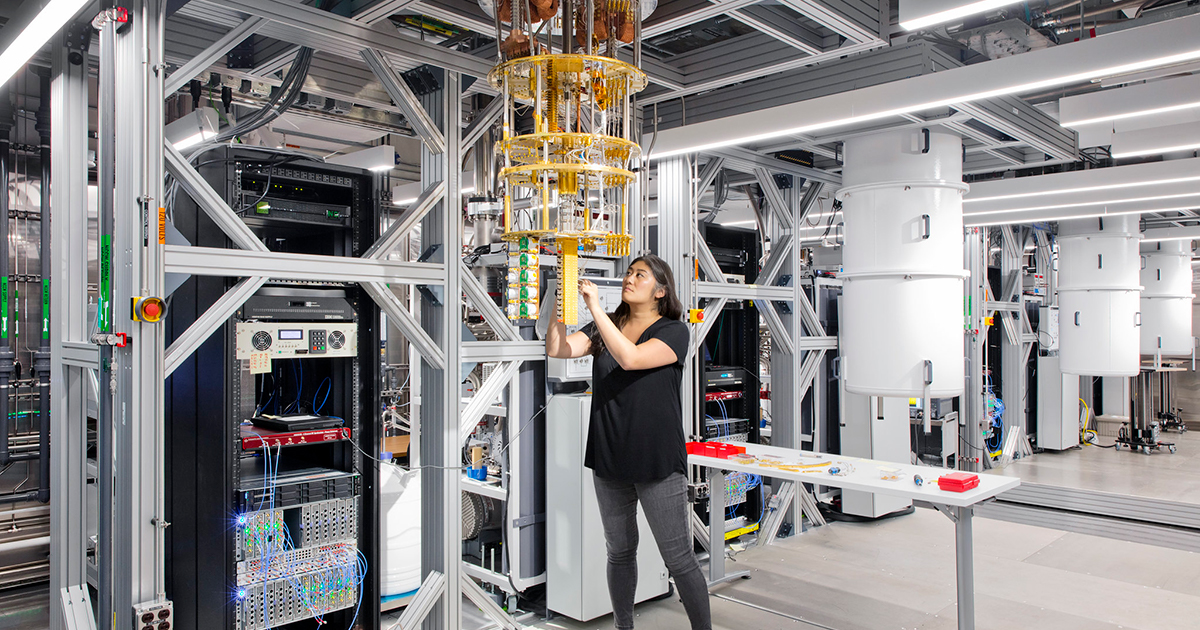Quantum Computing: The Future of Complex Problem Solving
Imagine a world with computers that could solve challenges beyond the capabilities of even the world’s fastest supercomputers. From decoding the mysteries of the universe to revolutionizing healthcare, quantum computing is poised to redefine the way we solve complex problems. But what exactly is quantum computing, and why is it heralded as the future of innovation?
This blog dives into the fundamentals of quantum computing, explores its potential applications, and examines how it’s set to change the landscape of technology, science, and more.
What is Quantum Computing?

To understand quantum computing, let’s first consider how traditional computers work. At their core, classical computers use bits as the smallest unit of data, represented as a 1 or a 0. These bits form the framework for all the computations your laptop or smartphone performs.
Quantum computers, on the other hand, use qubits (quantum bits). What makes qubits extraordinary is their ability to exist in a state of superposition, meaning they can represent both 1 and 0 simultaneously. Combined with entanglement—a phenomenon where qubits become interconnected and the state of one can influence the state of another, regardless of distance—quantum computing exponentially enhances computational power.
A Simple Example of Superposition and Entanglement
Imagine flipping a coin. A classical computer can represent the result as a 1 (heads) or 0 (tails) after the flip. A quantum computer, however, can represent the coin as both heads and tails at the same time while it’s mid-spin. When you add entanglement, it’s like flipping two coins, where the outcome of one flip can instantly dictate the result of the other.
Why Does Quantum Computing Matter?
Why does it matter if a computer can perform billions of calculations simultaneously? The answer lies in its potential to solve problems that even today’s most advanced supercomputers can’t tackle due to time, power, or complexity limitations.
Some of the key reasons quantum computing stands out include:
- Speed – Tasks that would take centuries for a classical computer could be done in minutes or seconds with a quantum computer.
- Complex Problem Solving – Large datasets or multivariable problems that are computationally unfeasible today can be addressed with quantum systems.
- Revolutionary Applications – Industries like finance, cybersecurity, medicine, and logistics would benefit immensely from quantum-powered solutions.
Real-World Applications of Quantum Computing
The possibilities for quantum computing are vast, but here are some of its most transformative potential applications:
1. Drug Discovery and Medical Research
Traditional drug development involves testing millions of compounds to find effective treatments—a process that costs billions and spans years. Quantum computers could simulate molecular interactions at an atomic level, cutting both time and cost.
For example, researchers could model human proteins more precisely to create personalized medicines or tackle diseases like Alzheimer’s more efficiently.
2. Optimization in Logistics
Have you ordered a package online recently? The logistics of delivering millions of parcels daily involve solving complex routing problems. Quantum computing can optimize supply chain logistics, improving delivery speeds while reducing costs. Companies like DHL and FedEx are already exploring these innovations.
3. Climate Modeling
Reducing the effects of climate change requires understanding Earth’s intricate systems, such as ocean currents, weather patterns, and more. While classical computers struggle with the sheer scale of such models, quantum computers could simulate and analyze these systems with unprecedented accuracy, helping us develop better environmental strategies.
4. Financial Market Predictions
Quantum algorithms could revolutionize financial modeling by analyzing complex datasets to predict market trends and potential risks. Portfolio management, fraud detection, and high-frequency trading could be optimized significantly using quantum technology.
5. Cybersecurity
Ironically, while quantum computing may disrupt encryption methods that safeguard sensitive data today, it also opens the door to creating quantum cryptography, which would be nearly uncrackable. Quantum key distribution (QKD) could redefine secure communication systems.
Challenges on the Road to Quantum Supremacy

While the potential of quantum computing is enormous, several challenges need to be addressed:
1. Hardware Limitations
Building quantum computers is incredibly complex. Qubits are delicate and sensitive to environmental factors like temperature, making them difficult to stabilize for long calculations. Researchers continue to work on improving quantum coherence (the duration qubits remain in their quantum state).
2. Error Rates
Due to their sensitivity, errors in computation are common in quantum systems. Quantum error correction is an active field of study, with scientists striving to minimize inaccuracies.
3. Cost and Accessibility
Quantum computers require specialized environments, such as near-zero temperatures. This makes them expensive to build, maintain, and scale for widespread adoption. However, companies like IBM and Google are developing cloud-accessible quantum systems to democratize access to this technology.
4. Talent Gap
Quantum computing demands expertise in physics, mathematics, and computer science. Currently, there aren’t enough skilled professionals to meet the growing demands of this evolving field.
The Future of Quantum Computing
Despite its current challenges, progress in quantum computing is accelerating. Tech giants like IBM, Google, and Microsoft, alongside startups like Rigetti and IonQ, are pushing the boundaries of what quantum systems can achieve. Governments and academic institutions are also heavily investing in quantum research.
It’s predicted that within the next 10–20 years, we’ll move closer to achieving quantum advantage—where quantum computers outperform classical systems for specific practical applications. When this happens, the impact across industries will be nothing short of revolutionary.
Key Takeaways for Tech Enthusiasts and Innovators
If you’re ready to explore quantum computing or consider how it may influence your future, here’s what you can do:
- Stay Updated – Follow developments from leading quantum computing companies and research institutions.
- Learn the Fundamentals – Familiarize yourself with quantum mechanics, algorithms, and programming languages like Qiskit or Cirq.
- Collaborate and Innovate – Consider partnerships or investments in startups harnessing quantum power for real-world applications.
Quantum computing isn’t just the next step in technological evolution; it’s a leap into a new era of possibility. While many questions remain about its implementation and adoption, one thing is clear—quantum computing will play a pivotal role in shaping the future of problem-solving.




